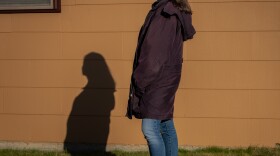
Geoff Brumfiel
Geoff Brumfiel works as a senior editor and correspondent on NPR's science desk. His editing duties include science and space, while his reporting focuses on the intersection of science and national security.
From April of 2016 to September of 2018, Brumfiel served as an editor overseeing basic research and climate science. Prior to that, he worked for three years as a reporter covering physics and space for the network. Brumfiel has carried his microphone into ghost villages created by the Fukushima nuclear accident in Japan. He's tracked the journey of highly enriched uranium as it was shipped out of Poland. For a story on how animals drink, he crouched for over an hour and tried to convince his neighbor's cat to lap a bowl of milk.
Before NPR, Brumfiel was based in London as a senior reporter for Nature Magazine from 2007-2013. There, he covered energy, space, climate, and the physical sciences. From 2002 – 2007, Brumfiel was Nature Magazine's Washington Correspondent.
Brumfiel is the 2013 winner of the Association of British Science Writers award for news reporting on the Fukushima nuclear accident.
-
The international atomic watchdog has been to some of the world's toughest locations, but nothing quite like Europe's largest nuclear power plant in an active war zone.
-
Inspectors from the International Atomic Energy Agency arrive today at the troubled Zaporizhzhia nuclear power plant to assess damage and establish safety and security conditions.
-
Satellite images and social media analyzed by NPR show attacks have hit structures around the plant, coming dangerously close to causing a nuclear disaster.
-
A 75-year-old woman became enmeshed in conspiracy theories about COVID. After she got infected, she rejected effective treatments and sought out black market drugs instead.
-
For decades, U.S. astronauts and Russian cosmonauts have lived side-by-side aboard the International Space Station. Now some are wondering whether that partnership can withstand the war in Ukraine.
-
As Americans commemorate a million deaths due to COVID-19, the partisan divide of who has gotten sick and died continues to grow, mostly due to disinformation about the vaccines.
-
Stephanie was usually careful about her health and regular vaccinations. But then she got into sharing far-out videos and fringe ideas. When COVID hit, misinformation put her and her husband at risk.
-
The satellite image lends credence to the idea that Russia may have exposed its troops to unhealthy levels of radioactivity.
-
Images of Ukraine are flooding social media, but experts warn they don't show the full picture and can sometimes give a misleading account of the conflict on the ground.
-
An NPR analysis of security footage and photos following the attack on Europe's largest nuclear power plant shows that many of the plant's critical safety systems were in the field of Russian fire.









